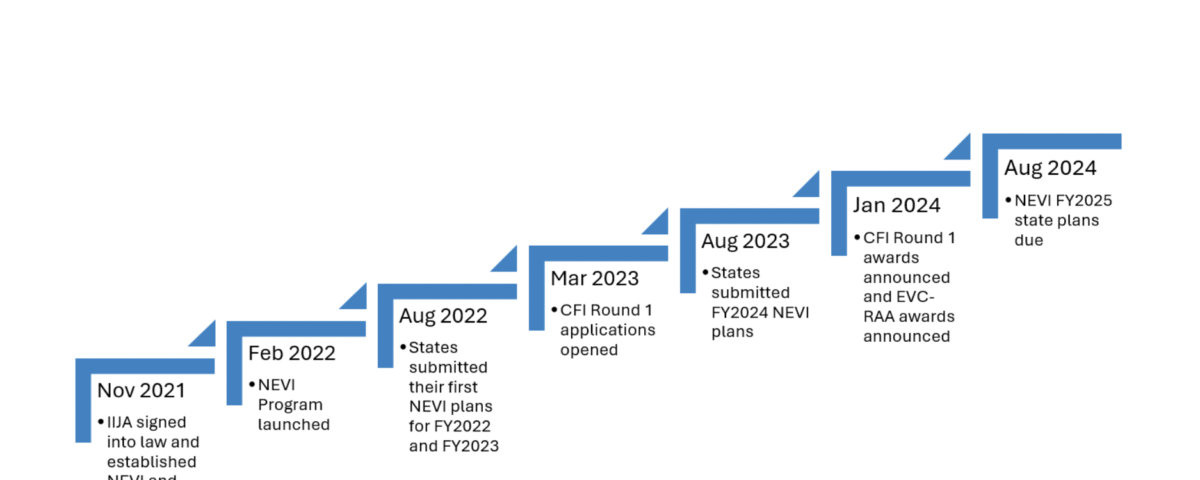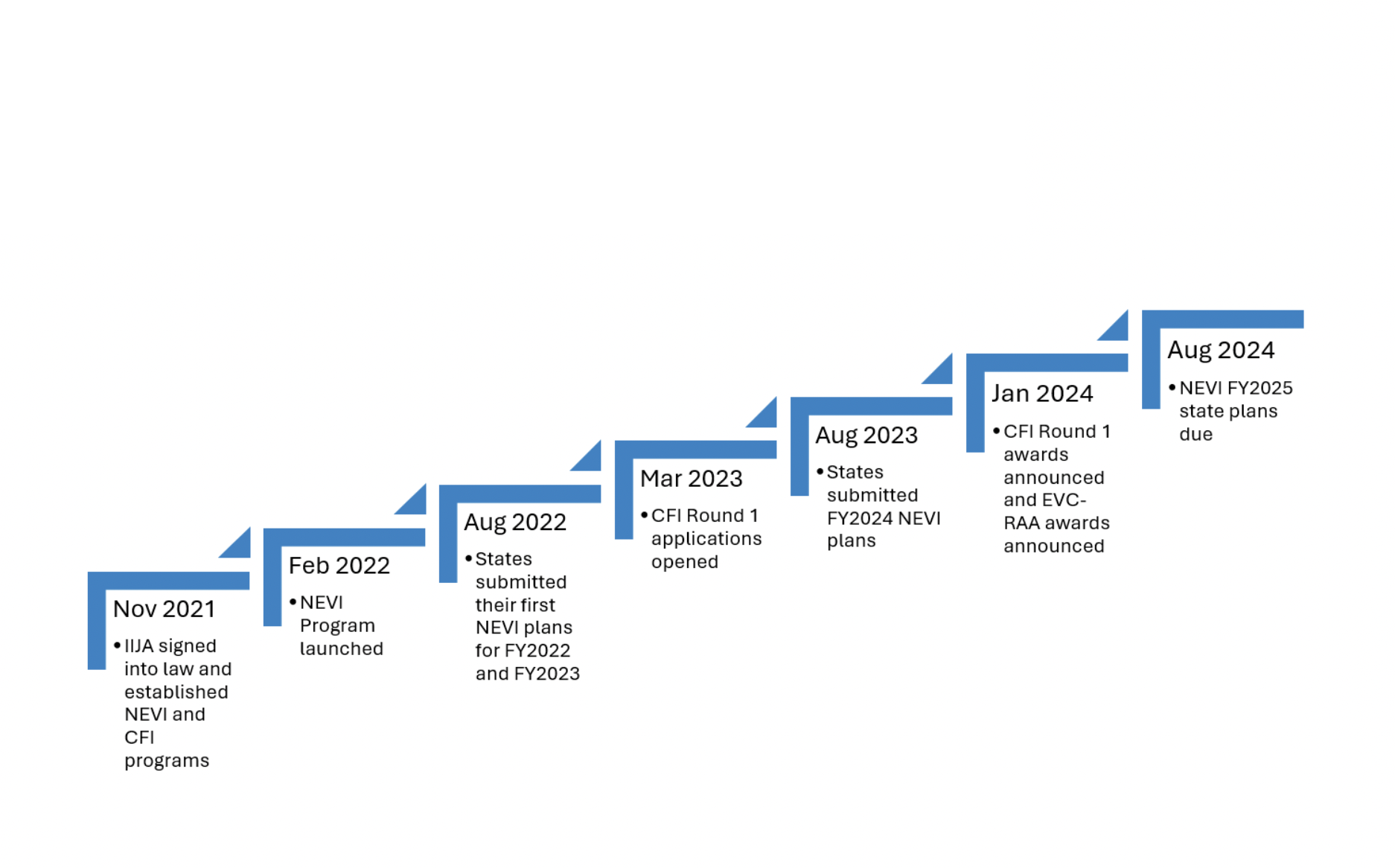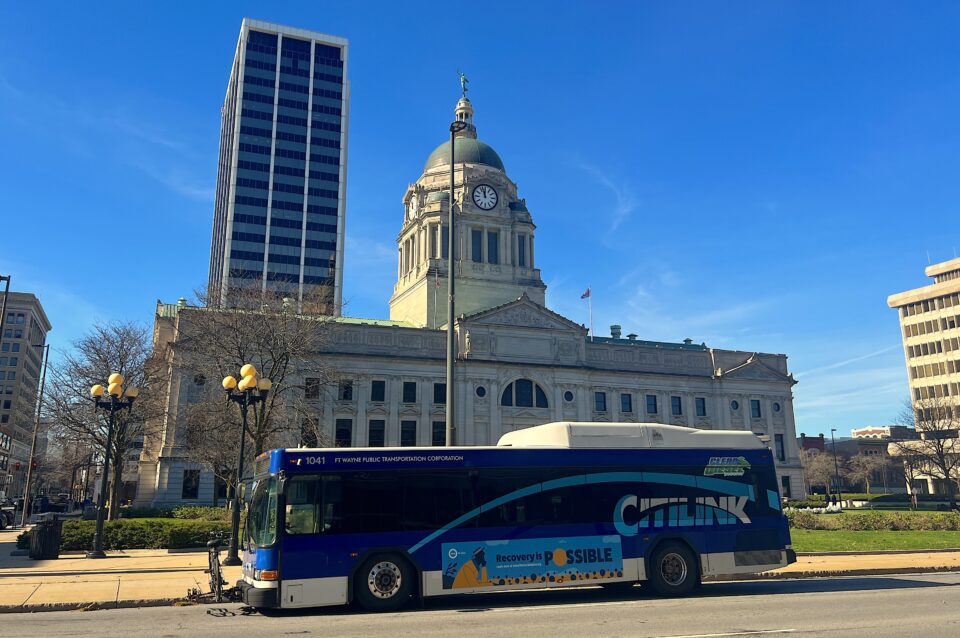Full Charge: A Look at Charging Infrastructure Funding Awards

The Infrastructure Investment and Jobs Act (IIJA) earmarks $7.5 billion over five years to establish a comprehensive nationwide electric vehicle (EV) charging infrastructure network. This funding is distributed across three significant EV charging programs administered by the U.S. Department of Transportation’s Federal Highway Administration (FHWA).The National Electric Vehicle Infrastructure (NEVI) Formula Program, accounting for $5 billion, is geared toward creating national charging corridors, particularly along major highways, with a goal of installing 500,000 chargers across the United States. More than half of the states have initiated the implementation of NEVI funds, with 32 states either soliciting proposals or directly contracting vendors for the installation of NEVI-funded public fast chargers. Charging the Crossroads is Indiana’s plan to invest nearly $100 million to build an electric vehicle (EV) charging network at strategic locations along Indiana’s interstates and highways. Currently, the Charging the Crossroads team is working hard to review the over 100 applications received for the first Notice of Funding Opportunity. INDOT anticipates potential owner-operators to be selected in March, and installing initial charging stations is anticipated to begin in 2025.”Furthermore, the Charging and Fueling Infrastructure (CFI) Discretionary Grant Program, with $2.5 billion, has recently allocated $623 million for EV and hydrogen charging infrastructure projects in 22 states and Puerto Rico. This funding supports 47 projects and facilitates the construction of 7,500 EV charging ports, with 84% of the funding allocated to EV charging projects. The CFI Program prioritizes rural areas, low- and moderate-income neighborhoods, and communities with low rates of private parking, aiming to address critical charging gaps in underserved and disadvantaged communities.NEVI and CFI programs are pivotal in advancing EV charging deployment and transportation electrification in the United States. As these programs continue to roll out funding, they contribute significantly to establishing a robust and accessible EV charging infrastructure network nationwide.
Charging the CrossroadsLearn more





